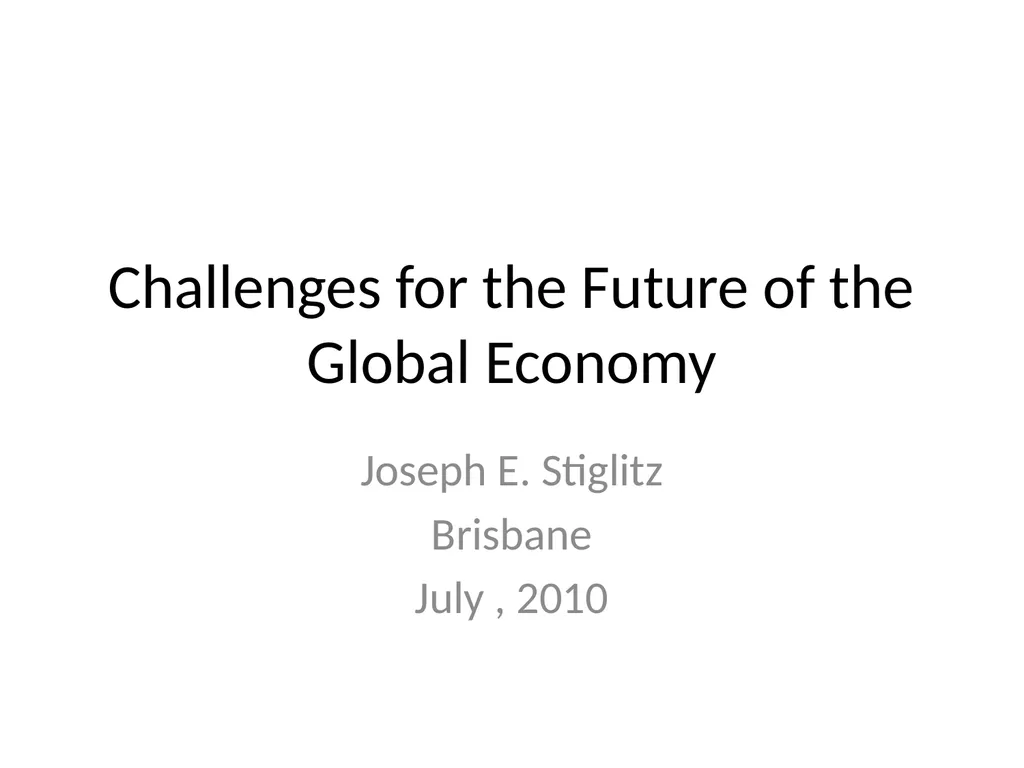
Author : danika-pritchard | Published Date : 2025-05-24
Description: Challenges for the Future of the Global Economy Joseph E. Stiglitz Brisbane July , 2010 Seven key challenges Recovering from the global slowdown Addressing global imbalances Creating a more stable global financial system Creating a newDownload Presentation The PPT/PDF document "" is the property of its rightful owner. Permission is granted to download and print the materials on this website for personal, non-commercial use only, and to display it on your personal computer provided you do not modify the materials and that you retain all copyright notices contained in the materials. By downloading content from our website, you accept the terms of this agreement.
Here is the link to download the presentation.
"Challenges for the Future of the Global Economy"The content belongs to its owner. You may download and print it for personal use, without modification, and keep all copyright notices. By downloading, you agree to these terms.













